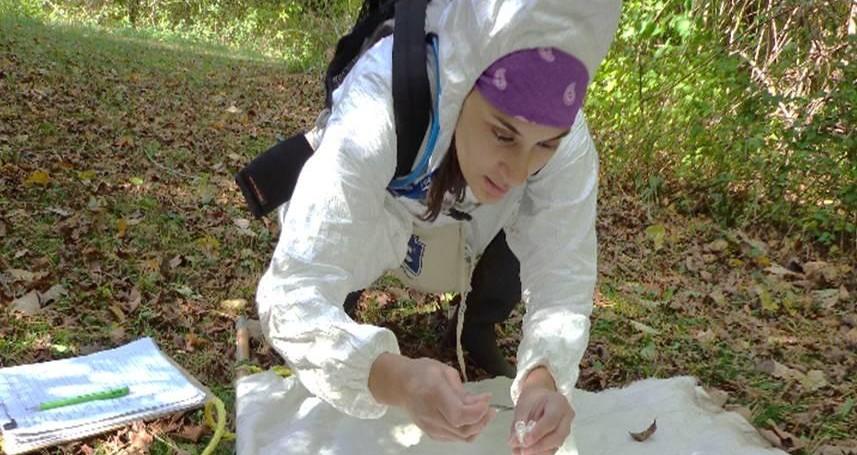May 2012 - October 2013
Mapping tick abundance and Lyme disease across Rice Creek Field Station habitats
The focus of my research is on tick abundance and Lyme disease at Rice Creek Field Station (RCFS). This research is important because it is not enough for the public to know how Lyme occurs, they must know where, when, and why ticks are most abundant and infected. If we understand the abundance of infected ticks we can know when the risks of acquiring Lyme disease are greatest. With the knowledge from this research it would be possible to create an ecological risk map for faculty, staff, students, and members of the public taking part in outdoor activities at RCFS.
Research is sort of a trial and error process. You plan it a certain way and if that doesn't work then you try something different. It is somewhat frustrating and challenging but it is worth it once everything starts falling into place. I also learned that I really love a good challenge!
Both lab and field work can be challenging but I have found that with lab work that you have the advantage of being able to control the environment. Whereas with field work, that is not always the case. For example, if it rained or the vegetation was wet, then I would not be able to conduct my tick surveys because ticks don't come out when it's wet.
Until spring of 2012, the courses that I had taken only consisted of lab work. So I would say prior to my research, I preferred lab work over field work only because I didn't have experience with field work. In the spring I took Introduction to Ecology. After that course and the RCFS research I have conducted, I would say that I enjoy both. I probably slightly prefer field work over lab work because it presents more challenges. One thing that this research has taught me is that things will most likely not go as planned but it's how we respond to the challenge that makes it such a great experience.
I was born and raised in a city and had never seen an actual tick so I taped pictures of ticks on my clipboard to use as a reference while I was out conducting my surveys. When I finally found my first tick I was so excited. After a couple of times out in the field I could tell right away that I had a tick by the way it moved and its size.
I was born and raised in Dallas, Texas (ticks are not an issue down there!). I think what first got me interested in science was when I went on a field trip to the Museum of Natural History, The Science Place, and the planetarium. I was very fascinated with the "how" part of a process. How did our bodies fight disease? How can a pathogen make us so sick? I am a big fan of science because in most cases we are able to obtain tangible data for our questions.
I plan to continue my tick and Lyme research in the upcoming year because the only way to understand the patterns of tick and Lyme is to conduct routine surveillance. I am interested in research as well as veterinary medicine and am planning on applying to a dual DVM/PhD program next year. I would like to pursue research in disease ecology, epidemiology, or pathology.



